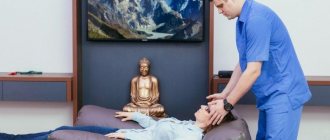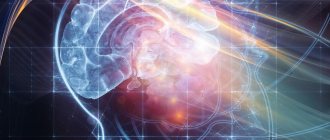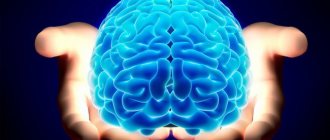Effectively
improvement after 1 session
Fast
from 2 to 5 sessions
Reliable
eliminating the cause of the problem
Price
15,000 ₽ per session
Get a free specialist consultation
Find out how to get rid of your problem forever
Sign up
Sleep is an important and integral component to our health and well-being. During the recovery cycle, the body is in a state of rest and repair, allowing us to continue working every day. For the vast majority of us, sleep is a natural part of our daily routine that we take for granted. However, some of us can appreciate how much we need sleep and what happens when we don't get enough rest.
Problems to be solved
Customer Reviews
Cost of sessions
Hypnologist, psychologist
Although there is a good chance that everyone may experience sleep disturbances on rare occasions, feeling restless, agitated, it is likely that we will be able to return to our normal lives once everything settles down. However, for some, sleep problems are much more common and are considered one of the most common health complaints of the 21st century, seriously affecting the physical, mental and emotional functioning of many people.
Sleep disorder is a term used to describe any problem related to sleep, such as insomnia, excessive sleeping, night terrors, sleep bruxism, nocturnal enuresis (urinary incontinence while sleeping). Some sleep disturbances may be related to a medical condition such as a mental disorder, some may occur as a side effect of a medication, and others may have no explainable cause.
There are various warning factors that may be indicators of sleep problems. For example, you feel as if you've had enough sleep but feel very tired during the day, if you fall asleep in the middle of a conversation, if your partner snores, makes physical movements in their sleep, talks in their sleep, sleeps while walking, or if you start take new medications that affect your sleep.
Please note that not everyone who experiences some or all of these symptoms is necessarily experiencing sleep problems, and each person will have their own symptoms.
Sleep cycle
Although sleep may seem like an unconscious state, it is actually a process consisting of several stages. Sleep is a cyclical process that can be divided into two main categories: REM sleep and slow-wave sleep.
slow sleep
The first phase of the sleep cycle, slow-wave sleep, consists of four main stages. During the first stage, muscle activity slows down, and although we are actually asleep, we can still easily awaken. After ten minutes we begin to enter the second stage, which on average lasts about 20 minutes, during which our breathing and heart rate slow down. The final stages put us into deep sleep, where our brain begins to produce delta waves and the rate of breathing and heart rate decreases to a minimum level. After this, we enter the final phase of slow-wave sleep, which is characterized by a combination of limited muscle activity and rhythmic breathing. In this state of deep sleep, we tend to feel disoriented if we wake up.
In slow-wave sleep, the body has the opportunity to recover from stress throughout the day, tissue repair and regeneration occurs, muscles and bones are strengthened, and the immune system is strengthened.
REM sleep
About 25% of the cycle is spent in REM sleep, occurring between 70 and 90 minutes of sleep. During this stage, the brain is most active, breathing rate and blood pressure increase, and our eyes move from side to side. Despite the increase in brain activity, our muscles remain paralyzed, which seems to limit the body from realizing our fantasies. We experience 3 – 5 stages of REM sleep every night. After REM sleep, the entire cycle begins again.
With each cycle during the night, slow-wave sleep becomes less dominant and REM sleep gradually becomes more dominant. Dreams can occur at any stage of sleep, but the most vivid dreams tend to be recalled when people awaken from sleep.
Types of sleep disorders and parasomnias
Parsomnia is a term used to describe sleep disorders that involve abnormal behaviors, movement, perceptions, emotions, and dreams that occur during various stages of sleep. Listed below are some of the most common sleep disorders that affect people today:
Confused Awakening
These are situations during which people wake up from sleep and remain confused. Patients respond very slowly to commands and may have difficulty understanding any questions. This often lasts a few minutes at most before that person falls asleep again. On the one hand, this seems harmless, although it may be an indicator of further sleep disturbance. Conditions such as sleep apnea and restless leg syndrome can cause increased movements during the first stage of sleep, which can lead to confused awakenings. This means that although it is not necessary for treatment, there may be associated sleep disorders that need to be diagnosed and treated accordingly.
Cold feet syndrome
This neurological disorder causes unpleasant and uncontrollable sensations in the legs, resulting in an overwhelming desire to move. Symptoms appear when a person relaxes, mostly at night, and moves their legs, usually to relieve some discomfort.
Patients feel heaviness, pain and irritation, which increases when they go to bed and try to relax; it becomes difficult and uncomfortable for them to sleep. If left untreated, the condition can lead to extreme fatigue and exhaustion, which can have a knock-on effect on work, relationships and daily activities, further increasing the risk of developing depression.
Sleepwalking
Sleepwalking is characterized by performing a series of complex activities, such as walking around the house, while they are still asleep. Patients often appear clumsy and confused and tend to have their eyes wide open. It is also not unusual for sleepwalkers to talk, but the answers may not make sense. If a person is not woken up and he returns to bed, then he may not remember anything in the morning.
As discussed above, there are five stages of sleep, the first four of which are non-REM sleep and the fifth is REM sleep. Each complete sleep cycle lasts approximately 90-100 minutes before it repeats itself, and sleepwalking most often occurs during the first or second sleep cycle of stages 3 and 4 NREM sleep. Although the disorder can occur in adults, the phenomenon is much more common among children and adolescents.
Other influencing factors include sleep deprivation, stress, alcohol and drug intoxication, antipsychotics (used to treat psychosis), antihistamines (used to treat allergies), tranquilizers and stimulants.
Physiological factors may also play a role during pregnancy and menstruation. They are believed to increase symptoms of sleepwalking in some people. In addition, certain medical conditions, such as mental disorders (eg, post-traumatic stress disorder, panic attacks, multiple personality disorder), sleep apnea (pauses in breathing during sleep), arrhythmias (abnormal heart rhythm), also increase the risk of the disease.
Bruxism during sleep.
Characterized by involuntary grinding of teeth, which may lead to the need for dental care. For many sufferers, bruxism occurs as a side effect of psychiatric or other illnesses such as Parkinson's disease, anxiety or depression, and experts have also found a link between the condition and certain medications such as narcotics (cocaine and ecstasy) and antidepressants.
Sleep paralysis
Patients are unable to move either when falling asleep or after waking up. Experts say this can happen during REM sleep, when sleep is suddenly interrupted. As discussed above, paralysis is normal. While we sleep, the body releases hormones that relax the muscles so that we can sleep peacefully. However, when we wake up in the middle of sleep, these hormones are unable to clear quickly enough, so our mind is conscious but our body is not.
This effect will pass quickly and may end with touch or sound. Although this disease does not cause any harm, it is a frightening experience that can be an isolated incident or a recurring problem.
Nightmares
Nightmares are vivid and frightening dreams that typically awaken the sleeper during the rapid eye movement stage. Such dreams are a natural part of our lives, and we all experience them at one time or another. However, for some people, nightmares begin to occur frequently and can become disturbing and disruptive, especially in children.
Nightmares should not be confused with night terrors, which are characterized by episodes of extreme panic and confusion that the sleeper does not remember.
According to the Diagnostic and Statistical Manual of Mental Disorders, the criterion for nightmares is that the patient wakes up and remembers in detail long and scary dreams, which are usually associated with a threat to survival. Patients may also find that their nightmares usually occur in the second half of sleep and they tend to be extremely anxious upon awakening.
In the case of nightmares, although the dreams are not necessarily related to a mental disorder, some patients may experience previous trauma that manifests itself in their dreams.
Nocturnal enuresis (bedwetting)
Nocturnal enuresis, or bedwetting, is the unintentional urination of urine during sleep. There are two main forms of the disease, primary and secondary enuresis. The term secondary urinary incontinence is used to describe relapses in a person who has previously experienced the problem. Primary enuresis, on the other hand, is where the person is constantly trying to maintain control and there may be medical conditions such as diabetes, sleep apnea and mental health as factors.
According to the Ministry of Health, the disease is more common among children, especially under the age of seven. Experts say the reason for the high prevalence in children is that some children are unable to produce enough antidiuretic hormone, which controls urine output throughout the night. Additionally, some children simply need more time than others to develop bladder control, and some may also have psychological problems at home or school that may be factors.
Nocturnal enuresis is also observed in adults, who may feel very embarrassed and embarrassed. If the illness begins suddenly, it is likely that something acted as a trigger, such as physical injury or sleep disorders.
Patients may try to mask their symptoms, which can ultimately affect their emotional state and relationships with others. In some severe cases, incontinence can limit adults from entering into relationships for fear of their partner finding out, and they may not feel comfortable on business trips or vacations where they have to be away from home.
Night terrors
With night terrors, patients suddenly wake up in a panicked state. Although the patient may appear to be conscious, they are often disoriented, confused, and unable to communicate. The duration of night terrors varies from person to person, but at this time, as a rule, the patient is very difficult to wake up, and after a while they lie down again and fall asleep. In the morning, patients, as a rule, do not remember the events of the night.
Today, insomnia is called one of the main problems of our time - its scale has already gone beyond the scope of the global epidemic. According to expert estimates, no less than 45% of the world’s population experiences sleep problems these days, and in large cities and metropolitan areas – up to 80% of the population.
Insomnia can be caused by many factors - stressful situations, an abundance of light, disordered daily routine, poor diet... As a result of lack of sleep, a person develops serious illnesses, ages earlier and even begins to gain weight.
How to deal with this scourge? How to get proper sleep?
Sleep was not invented by nature by chance, of course. In sleep, we not only restore strength. While the body is asleep (that is, muscle activity and all sensory organs are completely turned off), many biochemical processes occur in it. Moreover, those that are simply impossible during the waking period. For example, the process of fat breakdown occurs exclusively during the deep sleep stage. Therefore, if a person does not sleep soundly, intermittently, wakes up periodically and does not get enough sleep, he will not be able to lose weight, even if he sits on the strictest diets and breaks seven sweats in the gym.
In addition, the synthesis of a number of necessary hormones occurs exclusively during the stage of deep sleep. For example, the sleep hormone melatonin, which regulates the activity of the endocrine system, blood pressure, digestive organs, brain cells, and immune system. A unique feature of melatonin is that it is synthesized only in the dark, and in the light its concentration in the body decreases sharply.
Only in sleep the body synthesizes growth hormone - it is no coincidence that they say that children grow in their sleep. An interesting fact: we see dreams exclusively during deep sleep, and it should occupy at least a quarter of the time that we sleep during the day. Modern gadgets allow you to measure the “quality” of your sleep - and, unfortunately, many find out that they are not getting enough sleep. And many people know this even without gadgets...
No wonder - most of us are familiar with sleep disorders today. Residents of large cities live in conditions of constant noise, neon signs, and chronic stress. And if in villages people get tired more physically, then in cities they get tired more morally and emotionally. City dwellers are more exhausted by travel and problems at work. But at the same time, the modern city dweller has very little physical activity.
Due to all the listed external stimuli, the biological clock gets lost - we can’t sleep at night, and during the day we nod off. Disruption of the body's so-called circadian biorhythms (it has been proven that they determine the period of sleep and wakefulness) also occurs as a result of changing time zones. This phenomenon is called jet lag (from the English jet - “reactive”, lag - “delay”) - it is a sleep disorder that develops when changing 2 or more time zones in a limited period of time. If the time difference is less than 4 hours, everything is not too scary, but if it is more, the biological rhythm will be disrupted. Most often, the discrepancy between the internal biological and astronomical clocks begins as a result of the intersection of two or more time zones. Even a seasonal movement of the hands an hour forward or backward causes a person to experience a disruption in their biorhythms, to say nothing of a more significant shift in time! Remember, when a few years ago we suddenly canceled winter time, doctors began to record a sharp increase in the number of illnesses, heart attacks, road accidents, and children began to study worse? Fortunately, three years later the government came to its senses and turned back the clock.
There is also such a thing as social jetlag - a mismatch between the body’s internal clock and the surrounding rhythm of life, not caused by a long flight with a change in time zone. For example, when some long holidays begin, and the work schedule of the day is disrupted, because we all want to get enough sleep. This means we can afford to sit in front of the TV late at night, and then sleep until midnight.
Ideally, people should go to bed at sunset and wake up at dawn. However, few of us can afford it. We often get up in the dark, and in the evenings bright electric light awaits us in our apartments. The color of the blue spectrum, which is emitted by our favorite gadgets that we strive to take with us to bed, is especially harmful for the synthesis of melatonin.
Insomnia is not such a harmless phenomenon as many people think. It can lead to hypertension, heart disease and even cause stroke or diabetes. People who are chronically sleep deprived age faster, their skin turns gray and fades, and dark circles appear under their eyes. In addition, people suffering from insomnia have a harder time concentrating, causing them to be less attentive, more likely to get into car accidents, and have poorer performance and mental alertness.
How to deal with insomnia and is it possible to fight it? Nothing is impossible! You need to start by establishing a lifestyle. Get into the healthy habit of getting up and going to bed at the same time, no matter what day of the week it is or what color it is on the calendar. Try to find at least half an hour a day for physical activity (regular exercise in the morning), make it a rule to take a walk before bed.
Maintain good sleep hygiene. You need to sleep on a hard, flat surface, so invest in a good mattress. Buy bed linen only from natural fabrics - linen, cotton, chintz, satin. Synthetics disrupt the body's heat exchange, which, again, leads to insomnia.
Maintain the optimal temperature in the bedroom at 20-22 degrees. In addition, you need to ensure complete darkness at night, for which you should purchase thick curtains. An air humidifier would also be a useful purchase—it makes falling asleep easier.
Doctors advise not to overuse light stimuli before bedtime. Therefore, do not read tablets before bedtime. You can also outfit your room's lighting fixtures with bulbs that help maintain a warm light spectrum that helps you fall asleep in the evenings and a cool light spectrum in the morning that helps you wake up easier.
And further. Don't eat before bed. Stop eating at least three hours before you go to bed. Otherwise, you will set your body the task of spending a lot of energy on its processing.
Trying to sleep with alcohol is a bad idea. Of course, at first it will help you relax and fall asleep. And yet, the popular saying “an alcoholic’s sleep is short and restless” has not been canceled. After drinking, you are guaranteed to wake up earlier than usual.
Well, and a few more useful life hacks. A cold shower will help you relax before bed. The bedroom should be ventilated a few minutes before going to bed. Aroma lamps, especially those with menthol oil, help some people fall asleep.
Well, to help us all - SONNOVAN, a drug that normalizes circadian biorhythms, facilitates the process of falling asleep, improves sleep quality and even has an antioxidant effect.
The antioxidant effect of SONNOVAN underlies the anti-aging effect of the drug. Don't forget that a person who sleeps soundly and gets enough sleep gets sick much less, feels happier, is more successful in work and personal life, looks younger and lives longer. So you should make sure that your sleep brings you strength and health.
How can hypnotherapy help?
If sleep disorders occur, it is important that you see your doctor, who can provide diagnosis and counseling, and can rule out any serious underlying conditions. Your doctor may then recommend seeing a sleep disorder specialist, one of whom may be a hypnotherapist.
Hypnotherapy is about changing behavior patterns and therefore works effectively to treat many sleep disorders. Although the causes of each sleep disorder will vary, there are many reasons that contribute to the prevalence of some sleep problems. Certain mental disorders, sleep deprivation, various diseases and medications, and injuries are all considered causes of sleep disorders.
Hypnosis has long been used as a way to change negative behavior patterns, this can be done by accessing the unconscious mind to find the root of the problem and change its perception. For example, many sleep disorders are exacerbated by stress and anxiety, which can be effectively addressed through hypnotherapy. Typically, it is not the situation itself that causes stress, but how we react to it. By inducing a state of deep relaxation, the hypnotherapist can access the unconscious mind, so negative thoughts and reactions to a particular situation can be transformed into positive ones.
With the help of visualization, you can imagine yourself in a certain situation, feeling relaxed and calm. For example, a hypnotherapist might use guided imagery techniques for children with bedwetting by asking them to imagine something creative.
A hypnotherapist may use a combination of techniques, or using one specific technique may be effective in treating your disorder. In any case, your doctor will be able to tailor treatment to your own circumstances to achieve the most successful results.
Although sleep may seem like an unconscious state, it is actually a process consisting of several stages. Sleep is a cyclical process that can be divided into two main categories: REM sleep and slow-wave sleep.
Kuznetsov Denis Vladimirovichpsychologist of the highest category, hypnotherapist, medical psychologist -
HypnoLIFE
Do you want to eliminate the cause of the problem quickly and effectively? Make an appointment
Why Erickson's hypnosis is so effective
In everyday life, our consciousness actively works: we constantly operate with abstract concepts, analyze, systematize, think about, criticize something. The left hemisphere is responsible for all these actions.
The right hemisphere practically turns off in such a situation. But it is in it that the centers responsible for our creative abilities are located; it is thanks to the right hemisphere that we can fantasize, create something new, create. During Ericksonian hypnosis, the activity of the left hemisphere is blocked, and we can meet our unconscious, suppressed in everyday life. Since our creativity and imagination manifest themselves precisely when the right hemisphere is working, it is not surprising that in a state of hypnosis, patients suddenly find a way out of situations that previously seemed insoluble.
Ericksonian hypnosis is widely used in psychotherapy. They treat phobias, anxiety disorders, depression, alcoholism and many other diseases and conditions.
Reviews
A hypnologist helped me get through what was probably my most difficult time. I am sure that without support I would never have been as mentally stable and self-confident as I am now.
Elena
In my search, I came to a hypnologist when I realized that everything was not as good as I expected.
Svetlana
I am very glad that I decided to see a hypnotherapist and that the one I chose was a professional. It turned out that this path of self-knowledge is very surprising and interesting.
Catherine
As a result of therapy, I feel like I am a different person now.
Elizabeth
My hypnologist taught me that the past can be dealt with, and if you deal with it, it will give you strength and clarity.
Natalia
Hypnotherapy allows you to step back, look at your life and see the changes that need to be made.
Alexander
I decided to see a hypnologist to learn more about myself and understand why sometimes I felt depressed and sometimes on top of the world.
Zhanna
For me, hypnotherapy was a game-changer for my life, which was in a downward spiral. And I didn’t know which direction to go in until I had a few sessions.
Elena
I felt like I had been sleeping for a long time in my life, and now I was finally ready to live!
Tatiana
Hypnotherapy, for me, is a space where I can freely breathe, cry and let go of my stresses and worries, big or small, and smile, laugh and appreciate the uniqueness of my personality and life itself.
Oksana
I've never been to a psychologist or hypnologist before. However, at some point I decided to voluntarily quit gambling in casinos. And I tried hypnosis.
Andrey
I have developed skills that help me cope with new stressful situations. I have no doubt that this was a major turning point in my life and one that changed a lot as a result.
Diana
Hypnotherapy has allowed me to see the world in a new way and I now truly understand the true meaning of the word happiness.
Catherine
You helped me completely turn my life around - I turned from an extremely shy, modest woman to one who now knows her worth and now lives her own life and exclusively for herself.
Natalia
The sessions made me feel more confident as a mother and as a person.
Daria
I would recommend this to anyone who wants to gain self-understanding and a new perception of themselves and their reality.
Michael
Now I really love myself.
Elizabeth
I have a better understanding of myself, more self-confidence, self-honesty and confidence in what I can achieve.
Nikolai
My therapist taught me to look within myself for answers and to trust my own instincts—something I had never had confidence in before.
Tatiana
For the first time in 10 years I feel free! I feel like I have a future and I believe it will be carefree and without restrictions.
Alexei
I am happier now than ever before and can now focus on other things in my life.
Elena
Now I feel that I have ample opportunity to control my feelings and achieve positive results.
Larisa
I went from someone who thought I was broken to someone who was in tune with the world, more relaxed and ready to travel life's journey.
Andrey
My greatest joy is the amazing sense of peace I now have and the way I respond to certain situations that used to cause me to panic.
Ksenia
What is Ericksonian hypnosis
With Ericksonian hypnosis, a person enters a trance, during which he can look inside himself. Attention is no longer scattered to many objects and momentary events of the outside world, but can be concentrated on one’s own emotional experiences, sensations and fantasies.
During a hypnosis session, the patient understands everything that is happening and can actively communicate with the psychotherapist. At the same time, all the prohibitions and blocks that our consciousness places on us are removed. In a state of trance, the reporting systems used in ordinary life lose all meaning. This opens up a variety of previously unconscious possibilities for a person and provides an unlimited field for imagination.
Ericksonian hypnosis was created so that a person could get to know himself and find answers to the questions that trouble him in the nooks and crannies of his unconscious. During the session, the psychotherapist tells unusual stories in a special, “hypnotic” language, often humorous, but always thoughtful. The peculiarity of this language is that many concepts can be interpreted ambiguously, leaving room for interpretation by the patient himself. These stories, processed in the patient’s brain, become excellent material for self-learning and self-development.










